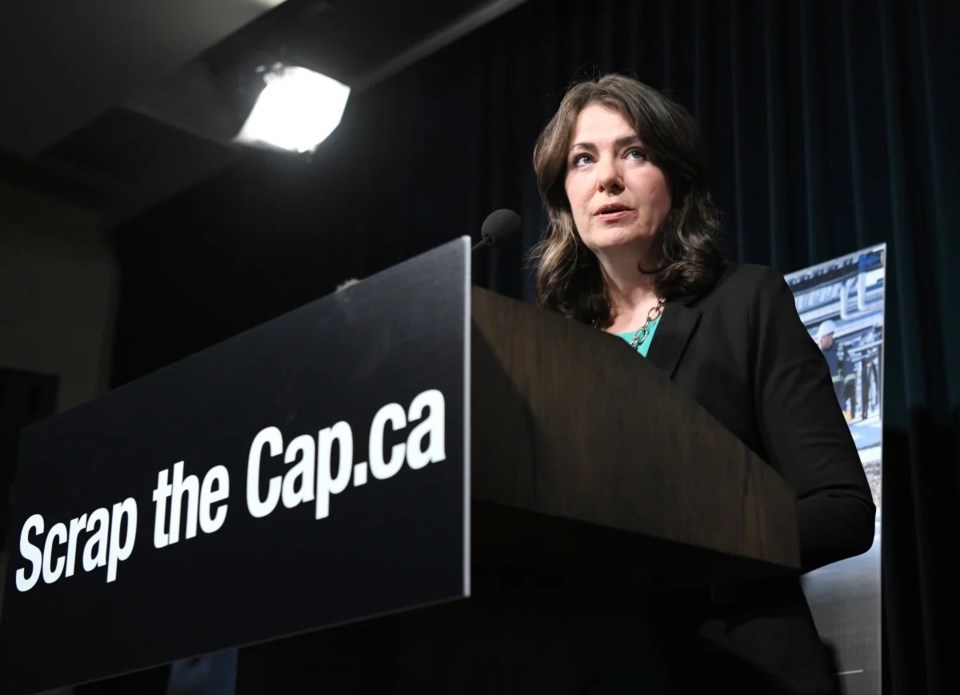Energy drilling activity in Canada next year will be at its highest level in a decade, according to industry projections, but the sector is still seeking more regulatory and policy support from the federal government.
The annual state of the industry report from the Canadian Association of Energy Contractors (CAOEC), released Friday, projects a 7.3-per-cent increase in the number of oil and gas wells being drilled in 2025, boosting the number of jobs by a similar level, to 41,800.
“Hope is making a comeback in the oil patch,” association chief Mark Scholz told CAOEC members at a luncheon in Calgary.
Despite the optimistic outlook for drilling, Mr. Scholz said the sector is facing various headwinds, including Ottawa’s proposed oil and gas emissions cap and the 25-per-cent tariff that U.S. president-elect Donald Trump has threatened to impose on imports.
“We are simply not reaching our full potential as an industry or country,” Mr. Scholz said.
“We can do better, and we must do better.”
The federal government must reset its attitude to energy policy, he said, particularly when it comes to the oil and gas emissions cap.
“We urge the federal government to reconsider this legislation, to take a hard look at where we are economically as a country, but more importantly where we see continued geopolitical risk for the country as well.”
He said the current state of relations between Ottawa, Alberta and the industry is simply not constructive for business or the work force.
“We’re just hopeful that we can move in a much more collaborative way to actually deal head on with some of the big challenges we face as a country and as an industry,” he said.
The optimism of CAOEC members comes from developments both within and outside Canada’s borders.
They include Mr. Trump’s focus on securing more affordable energy, increased pipeline capacity after the opening of the expanded Trans Mountain pipeline system earlier this year and the LNG Canada project, which is expected to begin operations in mid-2025, giving Western Canada’s natural gas drillers a new market for their product.
But Mr. Scholz said the sector has been “sorely disappointed” by what he sees as a lack of support from the federal government.
“Policies like the oil and gas emissions cap and anti-greenwashing provisions in Bill C-59 have left Canada’s energy sector in a difficult position, severely weakening its investment climate and creating additional uncertainty at a time when affordability and global energy security are already under threat,” he said.
Speaking at the event Friday, Alberta Premier Danielle Smith took the opportunity to repeat her government’s promise to ratchet up its fight with Ottawa over the proposed cap, which would limit emissions from the oil and gas sector to 35 per cent below 2019 levels.
Ms. Smith this week announced a legal challenge and a sweeping list of proposed actions intended to press Ottawa into scrapping the emissions cap, including seizing data that Alberta oil and gas companies collect about greenhouse gases at their facilities, barring entry to energy facilities by federal officials and ensuring that no provincial entity helps Ottawa implement or enforce the cap.
She acknowledged Friday at the CAOEC event that some of those measures have drawn concern from the sector, but said they would be the last resort in a “very frustrating” two-year negotiation with the federal government.
Calling the cap “utter foolishness,” Ms. Smith said hydrocarbons aren’t going anywhere. Indeed, she wants Alberta oil and gas production to double, along with pipeline capacity to the West Coast and the U.S.
That doesn’t necessarily mean the province will push to reanimate the long-dead Keystone XL pipeline plan, which was scrapped by proponent TC Energy in 2021 after U.S. President Joe Biden revoked a presidential permit issued by the Trump administration.
But Ms. Smith said she intends to examine all options to boost exports, including asking pipeline operators to find ways to expand their infrastructure by twinning lines and making transportation more efficient.



